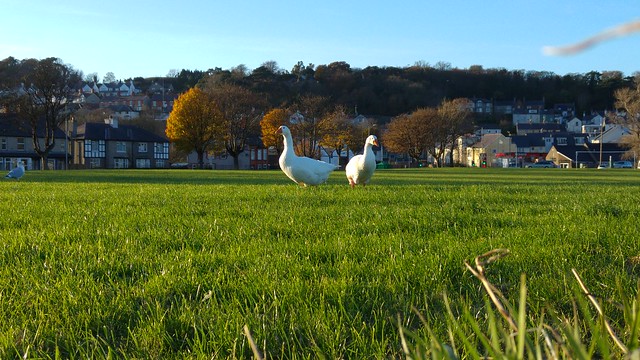Podcast: Play in new window | Download
The Irish word leathar and the Welsh word lledr both mean leather, and various other things. You might think that they were borrowed from English, but in fact the English word leather might ultimately come from a Proto-Celtic word, via Middle and Old English and Proto-Germanic [source].
The Proto-Celtic word for leather or hide was *(ɸ)letros, which comes from Proto-Indo-European *péltrom, from *pel- (to cover, to wrap, skin, hide, cloth) [source].
Related words in the modern Celtic languages include:
- leathar [ˈl̠ʲahəɾˠ] = skin, hide, leather in Irish
- leathar [l̪ʲɛhər] = leather, leathery in Scottish Gaelic
- l(h)iare = leather in Manx
- lledr [ɬɛdr/ˈɬeːdɛr] = leather, parchment, vellum, skin, hide in Welsh
- ledher = leather in Cornish
- lêr [lɛːr] = leather in Breton
The Proto-Germanic word *leþrą [ˈle.θrɑ̃] (leather), which was possibly was borrowed from Proto-Celtic, and from these roots we get words such as leather in English, leer (leather) in Dutch, Leder (leather, suede, hide) in German, læder (leather) in Danish, and läder (leather, suede) in Swedish [source].
Words from the same PIE root include pall, pelt, camouflage and film in English; plena (membrane) in Czech; piel (skin, fur) in Spanish, plah (to cover, veil) in Albanian, and pall (cloak, curtain, covering, tent) in Welsh [source].
See the Celtiadur post Leathery Hide for more details of words for leather and related things in Celtic languages.
You can find more connections between Celtic languages on the Celtiadur blog. I also write about words, etymology and other language-related topics on the Omniglot Blog.
Radio Omniglot podcasts are brought to you in association with Blubrry Podcast Hosting, a great place to host your podcasts. Get your first month free with the promo code omniglot.















